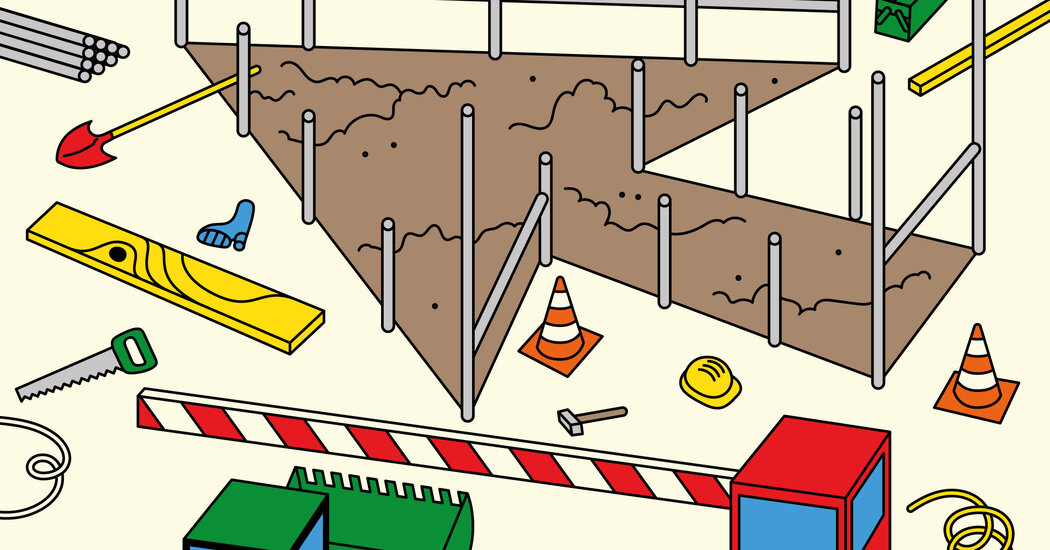There was a time, back in the early 2000s, when everyone seemed to think that the internet would make everybody rich.
The vision was compelling, if a little naïve. The internet, optimists argued, would allow individuals and small sellers to reach a global market of customers at low cost and without the need for big retailers. Increased connectivity would also make it easier for people to find work, invest money and learn new skills. Thanks to platforms like eBay, the future belonged to the Davids, not the Goliaths. “Small is the new big” was a popular slogan during those heady years.
The prediction turned out to be wrong. Yes, platforms like Amazon and Google have generated immense wealth and transformed society. But the money and power have not been broadly distributed. Instead, the platforms have captured the lion’s share for themselves, leading to concentrations of wealth that hark back to the Gilded Age. The Davids of the world ended up working hard to make a new set of Goliaths rich.
But we can still recover that early optimism and promise of opportunity. While we can’t start over from scratch, we can — with the right laws and policies — begin to reclaim the potential of the internet-based economy, shifting its center of gravity to encourage and reward the activities and innovations of the many instead of the few. This is a prescription for an economy that is fairer — and more dynamic, too.
No one can deny that the big tech platforms have become essential, the default infrastructure of much economic activity. But being essential should not entail an unfettered power to extract wealth from everyone else.
This is hardly a new lesson. To operate smoothly, economies have long depended on essential platforms, be they city markets, Main Streets or infrastructure like railroads and bridges. In the early 19th century, the Charles River Bridge, a private toll bridge in Boston, was so critical to local commerce that it was among the most profitable businesses in the United States. In a similar fashion, American farmers later became completely dependent on the railroads.
Historically, the government has imposed limits on how much money the platforms could take from the people and businesses that relied on them — and on how readily they could leverage their indispensability to their advantage. These limits were imposed not to constrain economic growth but to foster it: They protected the incentives for other economic actors to invest and build on the platforms. Such policies also ended up distributing wealth more equitably across social classes and geographic regions.
If left unchecked, a platform’s “take” impedes growth, as we are seeing today. Last year, Amazon charged private sellers, on average, between 50 and 60 percent of their sales in fees, according to the research firm Marketplace Pulse. You don’t need a degree in economics to see how that can discourage investment and innovation. Nearly every business in nearly every sector of the economy must now confront how much of its returns it will have to share with one platform or another. It’s effectively a system of private taxation.
Congress, despite endless hearings and plenty of big talk, has failed to enact even basic protections for small and medium-size businesses in their dealings with the internet platforms. Such protections, which have ample precedent in the law, should include requiring neutrality (so that platforms can’t favor certain sellers), forbidding special treatment for one’s own products (so that Amazon can’t prioritize its line of bath towels or HDMI cables when you search for those items) and allowing for certain forms of collective bargaining (so that news organizations, for example, can band together to pressure Google to pay more for news content).
Would these kinds of laws stifle economic growth or hurt the internet economy? According to industry lobbyists, libertarian think tanks and even some progressives concerned about the left’s penchant for overregulation, the answer is yes. They argue that regulation necessarily diminishes incentives to build. But that argument overlooks a key point: Limiting the platforms’ take also creates incentives to build and can effectively subsidize innovation.
History supports this conclusion. The golden ages of American building — the canal age, the railroad age, the electricity age — all featured flourishing economies that ran on neutral network infrastructure. No one in midcentury America denied the usefulness of electricity or the need to invest in electrification. But the assumption was not that an electric utility like ConEd should therefore be able to charge whatever it liked, in exchange for our trust that it would invent the future. Instead, electric utilities were regulated and innovation was left to the countless smaller inventors that used electricity in their products — such as the creators of the microwave oven, the laser and the personal computer.
It is simply too risky to count on just a few platforms to invent our future. Yet that is the bet we are making by sitting back and letting Google, Amazon and Facebook dominate.
Making matters worse, the platform-extraction model is now spreading from tech to other economic sectors. In health care, private equity firms have sought to reorganize the industry into what they openly call a platform model. What that means in practice is squeezing more work from doctors and nurses while raising prices. Likewise, rental housing has suffered from the rise of a corporate-housing platform: the centralizing of rental homeownership along with steady increases in rents.
The result is not just bad policy but also a cultural blindness: An entire generation has grown up thinking that extraction, as opposed to building, is the path to riches. That is a prospect at once uninspiring and, for most people, almost by definition, out of reach. To recover the sense of optimism and opportunity that once characterized American commerce, Americans need to be confident that — even if they don’t work for a platform — they can reap what they sow.
Restoring market balance is the key: an economy with many centers of power, not just a few. We need to return to an older and truer vision of prosperity, one in which many companies in many industries and in many regions are important sources of wealth. That would give us a fairer and more dynamic economy — and give a new generation some hope.
Tim Wu (@superwuster), a law professor at Columbia and a contributing Opinion writer, is the author of the forthcoming book “The Age of Extraction: How Tech Platforms Conquered the Economy and Threaten Our Future Prosperity,” from which this essay is adapted.
The Times is committed to publishing a diversity of letters to the editor. We’d like to hear what you think about this or any of our articles. Here are some tips. And here’s our email: [email protected].
Follow the New York Times Opinion section on Facebook, Instagram, TikTok, Bluesky, WhatsApp and Threads.
The post We’re Counting on Big Tech to Invent the Future. That’s a Bad Bet. appeared first on New York Times.




